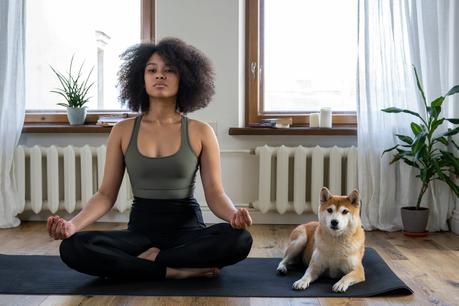
2020 has seen many of us experience higher levels of stress, and more regular stress, than any year before. Why? Well, on top of the usual stress we’d experience as part of our day to day lives, we’ve all been dealing with the consequences of the global coronavirus and Covid-19 pandemic. This pandemic has added a whole host of extra stressors to our daily experiences, ranging from health concerns to concerns for vulnerable loved ones to money worries.
This extra added stress threatens our overall happiness, health and wellbeing with physical, emotional and behavioral consequences. Physical consequences can range from headaches, to muscle tension, fatigue, sleep problems, and more. Emotional consequences can include anything from anxiety to irritability, restlessness, sadness and a lack of motivation. This can all result in behavioral consequences, such as emotional outbursts, undereating, overeating, withdrawal and worse.
So, if you’re starting to feel stressed, it’s time to take action and to actively implement relaxation into your day to day life. Here are some ideas that could help you to achieve this!
- Consider Massage
If you’re in an area where massage is permitted under Covid-19 restrictions and guidelines, it could be a great place to start when it comes to alleviating tension, relaxing yourself, and generally making you feel a whole lot less stressed. Massage is a practice that can really help when it comes to releasing the tension that you’re likely to feel when stressed. When you go for a massage, a professional and qualified massage therapist will rub and knead your muscles and joints, relieving tension and pain as they go. On the whole, this process often proves to be deeply calming and relaxing. Not only does the massage itself help, but the majority of spas that hold massages will ensure that they’re carried out in a truly soothing atmosphere and environment, often dimming lighting and playing calming music or sounds while the massage takes place. Just make sure to book the right type of massage! A sports massage, for example, serves as a form of therapy and can be harsher and even painful. Instead, opt for a relaxation massage, which will better suit your needs.
2. Try Calming Teas
Now, this may seem unbelievable, but a warm cup of tea really can help you to relax and can soothe you. Many of us feel a real sense of comfort when drinking any warm drink and there are specific teas out there that are supposed to give extra calming elements in every cupful. If you’re sensitive to caffeine, you may want to seek out caffeine-free teas for the best results. Some of the most calming teas include:
- Green tea
- Chamomile tea
- Peppermint tea
- Lemon balm tea
- Valerian root tea
3. Practice Mindfulness
If you haven’t yet heard of mindfulness, or simply haven’t considered giving it a try yourself, you should consider it now. Mindfulness is by no means a new practice. In fact, it’s been practiced around the world for centuries. But it has only become popular and widely practiced in Western culture in more recent years. Put simply, mindfulness is a practice that will help you to become aware of everything that’s going on around you, but that will encourage you to let all of these things pass without judgment. It can help you to stop worrying and focusing on the negative in life and can radically alter your mindset, helping you become more optimistic and hopeful. Of course, you may struggle to get used to practicing mindfulness at first, but don’t worry or doubt yourself. There are countless free online tutorials and apps available online that can introduce you to the basics and really help you to get to grips with mindfulness. These tutorials can increase in difficulty as you progress, guiding you through your journey and significantly changing your life!
Of course, if you’re feeling overwhelmed with stress and are struggling to cope with it, we’d highly recommend that you reach out for professional help and assistance. This could be in the form of a doctor or a therapist. Generally speaking, it’s best to first reach out to a doctor, who can diagnose any underlying conditions that could be contributing to your stress and refer you on for therapy or provide medication – or implement a combination of the two approaches. Otherwise, if your stress is less consuming, hopefully, some of the above suggestions will help you out!
Thank you for reading!


